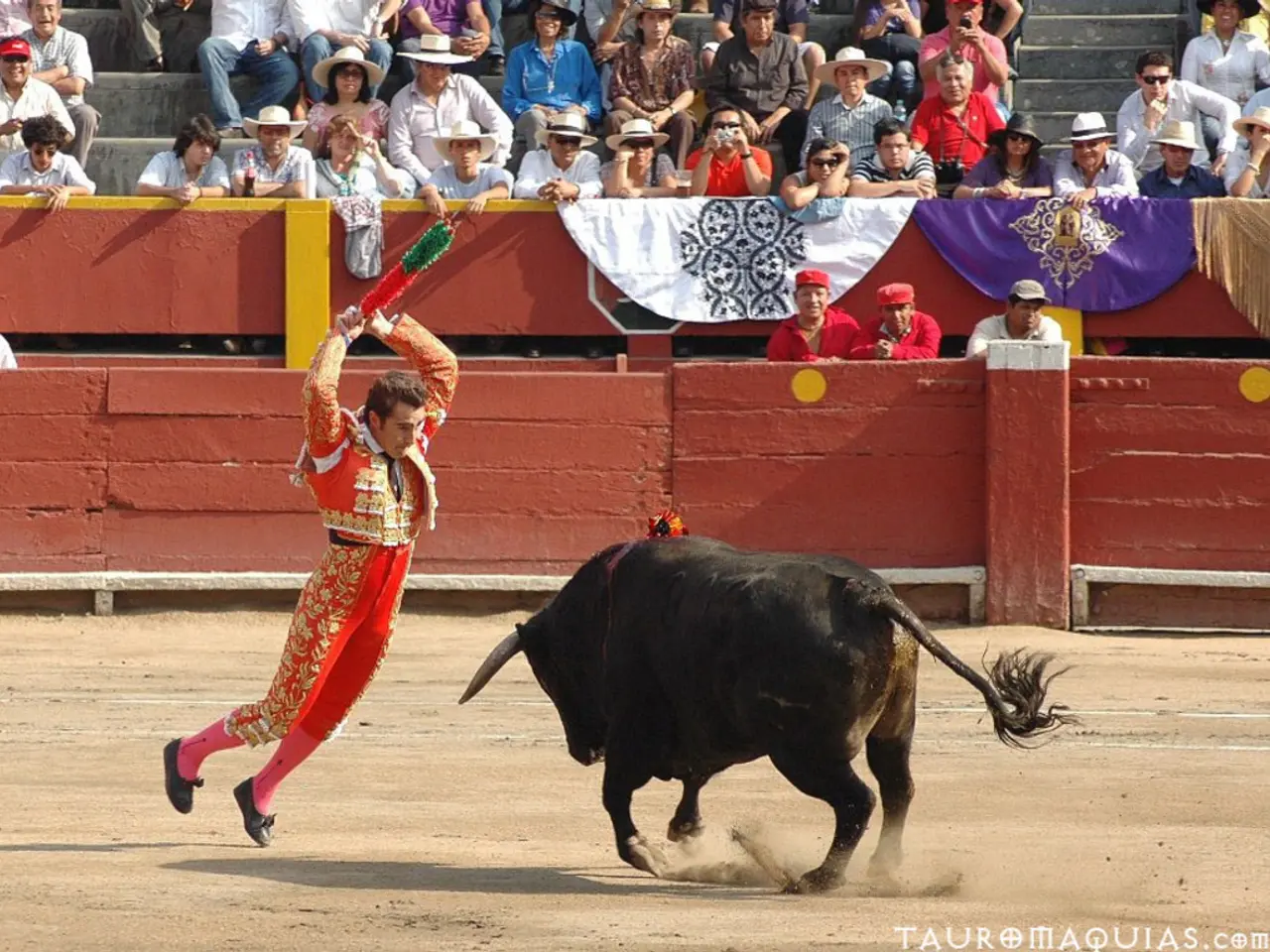Texas hunter meets tragic fate while pursuing Cape buffalo in Africa
In a tragic turn of events, Asher Watkins, a renowned Texas real estate magnate, lost his life during a hunting expedition in South Africa. The incident, which occurred while Watkins was tracking a Cape buffalo, has sparked discussions on the ethics of trophy hunting.
Watkins, a 52-year-old outdoor enthusiast, was a frequent hunter and the leader of Watkins Ranch Group, a real estate brokerage firm responsible for multimillion-dollar properties across Texas, Colorado, and Arkansas. His love for the outdoors was evident, with a company biography noting his passion for fishing and hunting.
However, the incident that took place during a hunting expedition led by Coenraad Vermaak Safaris (CVS) in Limpopo, South Africa, has brought the industry under scrutiny. Despite being accompanied by a professional hunter and guide, the Cape buffalo, known for its fearsome reputation, suddenly charged and inflicted fatal injuries to Watkins.
The Cape buffalo, considered the most dangerous animal to pursue in Africa and potentially the world, is responsible for several deaths and many injuries to hunters each year. No other animal has a more fearsome reputation, according to CVS. This unpredictability raises questions about the morality of pursuing such animals when human life can be endangered.
From an ethical perspective, several key issues emerge. The risk and unpredictability of trophy hunting, the animal welfare concerns associated with the practice, the conservation and economic arguments for and against it, and the respect for wildlife are all points of contention.
Animal rights groups and activists argue that trophy hunting is an unjustified killing for sport, causing animal suffering and death primarily for trophies rather than subsistence. They contend that it is unethical to pursue dangerous game species for recreation, especially when the animals may defend themselves aggressively when provoked.
On the other hand, hunting tourism in South Africa generates substantial revenue, with wealthy foreign hunters spending on average over $30,000 per visit. Proponents argue that this funding supports local economies and conservation efforts. However, critics question whether these benefits outweigh the ethical and ecological costs.
The death of Asher Watkins serves as a stark reminder of the risks associated with trophy hunting. His family and staff members are understandably shaken by the incident. Gwen, Savannah, Amon, and Tony, among Watkins' surviving relatives, were part of the CVS family, and the incident has left them mourning the loss of a dear friend.
In light of this tragic event, it is crucial to consider the ethical implications of trophy hunting and weigh the potential dangers against the benefits. As the public continues to debate the morality of this practice, the memory of Asher Watkins serves as a poignant reminder of the inherent risks involved.
References:
[1] BBC News. (2021, September 1). Texas real estate tycoon Asher Watkins dies in Cape buffalo attack in South Africa. https://www.bbc.com/news/world-africa-58410124
[2] PETA. (2021, August 31). [Post commenting on Asher Watkins' death]. https://www.instagram.com/p/CVY9z72n5Hs/
[3] The Guardian. (2021, September 1). Texas real estate tycoon Asher Watkins dies in Cape buffalo attack in South Africa. https://www.theguardian.com/world/2021/sep/01/texas-real-estate-tycoon-asher-watkins-dies-cape-buffalo-attack-south-africa
- The tragic death of Asher Watkins during a hunting expedition has sparked an ESG discussion, as various groups question the moral implications of trophy hunting and its impact on animal welfare.
- Given the substantial revenue generated through hunting tourism in South Africa, the debate surrounding trophy hunting and its ethical implications continues, with the loss of Asher Watkins adding to the general news of this controversial practice.
- Assets worth millions within the real estate sector aren't the only matters under consideration for the Watkins' family and his company, Watkins Ranch Group, as questions about the safety and morality of trophy hunting persist in sports and business circles.







